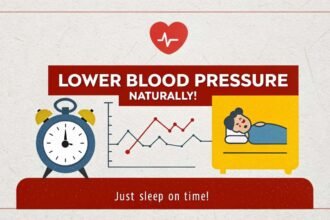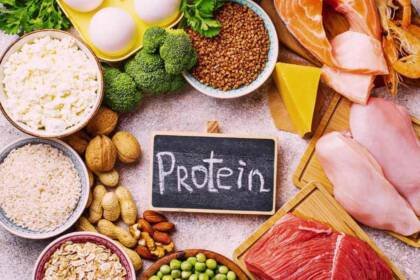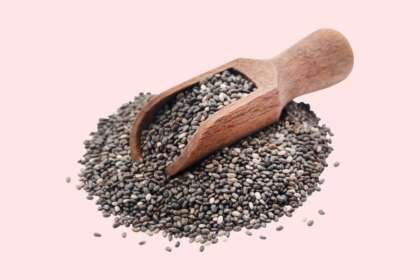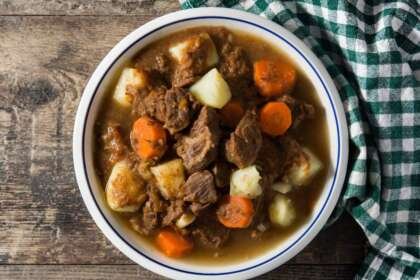As a cruciferous veggie, broccoli is praised for having a lot of nutrients and being good for you in many ways.
Adding broccoli to your diet can have amazing health benefits, especially when it comes to preventing cancer, lowering cholesterol, and keeping your eyes healthy.
1. Cancer Prevention
Broccoli has a lot of bioactive substances, especially glucosinolates, which are broken down in the body to make isothiocyanates like sulforaphane.
These chemicals have shown promise in lowering oxidative stress, reducing inflammation, and stopping the growth of cancer.
Studies based on observations show that eating cruciferous veggies like broccoli on a regular basis may lower the risk of many types of cancer, including lung, colorectal, breast, prostate, pancreatic, and stomach cancer. (Source)
A lot of research has been done on sulforaphane to find out how well it fights cancer. It works at the molecular level to stop the growth of cancerous cells, neutralize chemicals, and lower oxidative stress.
According to research, sulforaphane may slow the spread of cancer by helping the body get rid of possible cancer-causing substances and stopping tumors from expanding. (Source)
2. Cholesterol Reduction
Heart disease is more likely to happen if you have high cholesterol. Broccoli has chemicals in it that link to bile acids in the gut. This makes them leave the body more quickly and stops them from being used again.
This process forces the body to make new bile acids from cholesterol, which lowers the amount of cholesterol in the body as a whole.
It has been found that steamed broccoli is especially good at this bile acid-binding process, which could lower cholesterol levels. (Source)
Broccoli also has a lot of soluble fiber, which was shown to lower LDL (bad) cholesterol. Adding fiber-rich foods like broccoli to your diet can help your heart health by making your cholesterol levels better. (Source)
3. Eye Health
Broccoli has a lot of beta carotene, which the body changes into vitamin A, which is important for eyesight.
Not getting enough vitamin A can make it hard to see at night and cause other vision problems. Broccoli can help keep your vitamin A levels healthy, which is good for your eyes in general.
It can be easy and flexible to add broccoli to your diet. Broccoli stays healthy whether it’s steamed, roasted, or added to soups and stir-fries.
To keep as many nutrients as possible, you might want to steam or lightly cook broccoli instead of cooking it for a long time, which can destroy some of its good chemicals.
In conclusion, eating broccoli regularly is good for your health in many ways, especially when it comes to preventing cancer, lowering cholesterol, and keeping your eyes healthy.
Broccoli is a healthy food that can be added to a balanced diet because it has many nutrients and bioactive substances that are good for you.
Frequently Ask Questions
What is the main benefit of broccoli?
The main benefit of broccoli is its exceptional nutritional profile, particularly its role in promoting overall health. Rich in vitamins, minerals, fiber, and antioxidants, broccoli is renowned for its cancer-preventive properties. Its high levels of sulforaphane, a bioactive compound, help reduce oxidative stress, support detoxification, and inhibit the growth of cancerous cells.
What happens if we eat broccoli daily?
Eating broccoli daily can offer numerous health benefits, such as improved digestion, enhanced immunity, better cholesterol levels, and reduced inflammation. The antioxidants and fiber in broccoli support heart health and gut health, while its nutrient density helps meet daily requirements for vitamins like C and K. However, moderation is key, as excessive consumption might lead to gas or bloating in sensitive individuals due to its fiber content.
Is boiled broccoli healthy?
Yes, boiled broccoli is healthy, but cooking it for too long can reduce its nutrient content, particularly water-soluble vitamins like vitamin C. To preserve its nutritional value, lightly steaming or boiling broccoli is recommended. Adding it to dishes after minimal boiling ensures you get the health benefits while retaining its vibrant color and crisp texture.
How much broccoli to eat per day?
A serving of broccoli is typically one cup, which is approximately 150 grams. Eating one to two servings per day is considered beneficial for most people, providing an adequate intake of fiber, vitamins, and minerals. Adjust your intake based on your dietary needs and any advice from a healthcare professional.
What are 3 ways you can eat broccoli?
1. Steamed or Boiled: A quick and simple method that preserves nutrients and pairs well with a sprinkle of olive oil, lemon juice, and herbs.
2. Roasted: Toss broccoli florets with olive oil, garlic, and your favorite seasonings, then roast them in the oven for a crispy, flavorful side dish.
3. Raw: Add chopped raw broccoli to salads or enjoy with dips like hummus for a crunchy and nutritious snack.
Why is broccoli a superfood?
Broccoli is considered a superfood because of its dense nutrient composition and wide range of health benefits. It is packed with vitamins C, K, and A, as well as folate, fiber, and powerful antioxidants like sulforaphane. These compounds contribute to cancer prevention, heart health, improved digestion, and reduced inflammation, making broccoli a valuable addition to a balanced diet.












